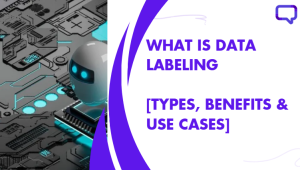Businesses need to adjust to their customers’ changing priorities. Customers want privacy, stress social values, and quick and effective solutions in the future of customer service. Many also care about a company’s social responsibility. Companies should see these changes as chances to innovate and create value. Businesses can be more successful than ever by using technology and focusing on customer satisfaction.
Table of Contents
From a consumer perspective, you want quick, helpful answers.
To meet these needs, businesses focus on measures like customer satisfaction (CSAT) and first-time problem solving.
Yet, the ways to boost these scores are always changing. The future holds many shifts in customer service.
With tech growth, businesses see the power of merging human expertise with tech tools for top-notch service.
This means using AI, IoT, blockchain, and cloud tech.
In our competitive world, businesses seek fresh ideas to enhance service.
With my deep background in customer service outsourcing, I’ll share my thoughts and forecasts on customer support in this article.
How Customer Expectations are Changing
Customers Expect You to Have a Social Media Presence
As I mentioned above, customers still expect fast responses and rapid resolutions to their problems.
However, how those things happen is changing.
For example, up until half a decade ago, the majority of customers couldn’t imagine interacting with a business by SMS or text.
As a customer, you would call a company, ask for details, place an order, and follow up – all through your phone.
Now, customers expect you to have a social media presence, phone and email support, and probably even live chat!
Many brands are simply operating on a single social media platform – that’s mind-boggling if you think about it.
Rather than having to invest in a physical location, people are merely operating through Instagram, for example.
They’ve set up pages, uploaded pictures of their products and social proof in the form of reviews, and set up automated responses to guide the customer.
So if a company is offering such a smooth, streamlined process and another company in the same niche is still living in the medieval ages, of course, they’ll lose an edge.
Customers Expect You to Have a Live Chat
Moreover, the definition of a fast response has changed due to the advent of social networking.
What it meant for someone five years ago isn’t the same as what it means for someone today.
That means businesses offering live chat on their websites will gain a massive edge – 64% of customers said they tried a new communication channel like live chat during the pandemic, according to a Zendesk report.
That does not mean you should only offer live chat, you need to have omnichannel support in place that integrates all channels of communication.
Nonetheless, the benefits of live chat are numerous, and they’re backed by statistics as well. Check out this recommended reading for further details.
Customers Expect You to Be Well-Informed About Them and Their Privacy
With the emergence of personalized and targeted ads, there’s increasing tension between customers and businesses regarding privacy.
According to Gartner’s 2022 survey, 71% of B2C customers and 86% of B2B customers expect customer support reps to be well-informed about them.
That includes addressing customer privacy concerns and ensuring their trust.
Businesses can address these privacy concerns by ensuring transparency as to why they’re collecting customer data and how they’re going to use it.
Furthermore, make sure that you collect customer information that can be used to benefit both the customer and the company, rather than just the company.
Customers Expect You to Have Omnichannel Service
A customer who initiates a conversation on a social media platform won’t understand why the same business doesn’t remember that conversation when on call.
That means, for customers, you’re just a business whose channels of communication are all aligned.
It won’t make any sense for them when your call agent is unaware of what was discussed with your social media manager on Facebook.
Therefore, make sure you’ve got omnichannel support in place.
Remember, omnichannel support is different from multichannel support.
In omnichannel support, all modes of communication are interconnected and context is not lost. In multichannel support, various channels work independently and separately from each other.
This is also backed by data – a study shows that high-performing companies are more likely to have adopted omnichannel support.
Customers Expect You to Care About Values
Customer service in the modern world isn’t just about being available 24/7 – it’s also about caring for values like empathy, social responsibility, diversity, and inclusion.
Future Challenges That the Service Industry Faces
Keeping Up With Changing Customer Expectations
Customers expect more than ever in service. They want quick results and value their privacy, as I’ve told above.
Additionally, they look for tailored experiences, support across channels, fast replies, and consistent quality.
As a business specialist, I’ve seen these desires change with tech and industry shifts.
So, businesses should keep pace, personalize encounters, offer varied channel support, and ensure uniform quality.
Not meeting these hopes can lower satisfaction, harm a company’s image, and lose loyal customers.
Scaling Customer Support as Business Grows
Scaling up often challenges businesses, especially in handling more customer inquiries.
It’s not just about a bigger team, but refining processes, using the right tech, and ensuring quality as interactions grow.
As a B2B service, many firms outsource to us mainly because of scaling challenges.
Often, in-house teams struggle with growing volumes. Hiring and training more staff is resource-intensive.
That’s where outsourcing becomes beneficial for growth.
Read More About Outsourcing: The Ultimate Guide to Outsourcing Customer Support 2023
Lack of Skilled Resources
Automation and AI are reshaping customer service roles.
Soon, agents will need more than just language skills and sending preset replies.
They’ll need empathy, innovation, growth-driving ability, and leadership.
A shortage of such skilled agents could pose issues, as complex interactions will demand a human touch beyond AI’s scope.
Translating Digital Needs Into Tangible Improvements
The rise of digital customer interaction channels has provided businesses with a wealth of customer data.
However, turning this data into tangible improvements in customer service is a considerable challenge.
Businesses must analyze this data effectively, identify actionable insights, and implement changes that meaningfully enhance customer experiences.
Without the right analytical capabilities and tools, businesses may fall short of fully exploiting their digital resources, missing vital opportunities to improve their service delivery.
Investing More in Customer Service
As per my experience so far, I strongly believe in the critical role customer service plays in driving business success.
However, customer service investment is often overlooked, and overshadowed by areas perceived to have a more direct impact on revenue.
But as competition stiffens and customers become more discerning, businesses that prioritize customer service investment gain a competitive advantage.
I cannot stop stressing this enough – good customer service is a competitive advantage.
This involves more than just finances—it requires time, effort, and a commitment to fostering a customer-centric culture.
Recognizing customer service as a key business function can boost customer retention, enhance customer loyalty, and ultimately, stimulate business growth.
The Future of Customer Service & Trends
According to Gartner’s recent survey, “Organizations are shifting from a reactive strategy designed to limit costs to a predictive strategy that delivers additional value to customers”.
That means rather than having a strategy that includes live chat and other reactive forms of customer service, you need to have a proactive strategy that not only resolves the issues of customers but forces them to take further action.
This is an interesting approach because this shows that rather than benchmarking against the usual KPIs of CS like CSAT or FCR, businesses should move towards value enhancement as the success measure.
Furthermore, a primary trend in the customer service industry will be the shift from CS departments being “cost centers” to “growth centers”.
Value Enhancement as a Service KPI
Value enhancement means rather than measuring your business success by asking customers for feedback and reviews only, you have to make them see more value in the products and services you’re offering.
In the form of a score, it is the best predictor of customer loyalty in the long run – more powerful than CSAT, NPS, or FCR.
These traditional metrics depend on the customer’s perception based on one interaction and thus, aren’t a strong enough predictor of customer loyalty in the long run.
What is a Value Enhancement Score (VES)
Value Enhancement Score is a customer service metric used to measure the value that customers place on a product or service. It is a much better predictor of customer loyalty than the traditional metrics used in customer support.
It operates based on two questions on which a service interaction should be evaluated:
- How the interaction has impacted the customer’s ability to use the product or service
- How the interaction has impacted the customer’s confidence in the decision to purchase the product or service
You can see how such an assessment will not only help satisfy a customer but also force them to spend more with your business and give you a better ROI.
According to Gartner’s same survey, by 2025, the success of 40% of customer service and support roles will primarily be evaluated based on value enhancement, a significant increase from the 17% recorded in 2021.
Conclusion – The Future of Customer Service
In summary, customer service is evolving rapidly.
With advancing tech and shifting customer preferences, the landscape is transforming.
Customers now crave quick, tailored service through their favorite communication methods.
Such demands challenge service teams, but also offer opportunities for companies to innovate in their approach.
To stay ahead, businesses should adopt new tools, invest in training, and always prioritize customer satisfaction.
While AI will soon handle basic interactions, human agents will focus on complex issues and relationship-building.
Despite technological advances, the essence of customer service remains: treating customers as kings.


